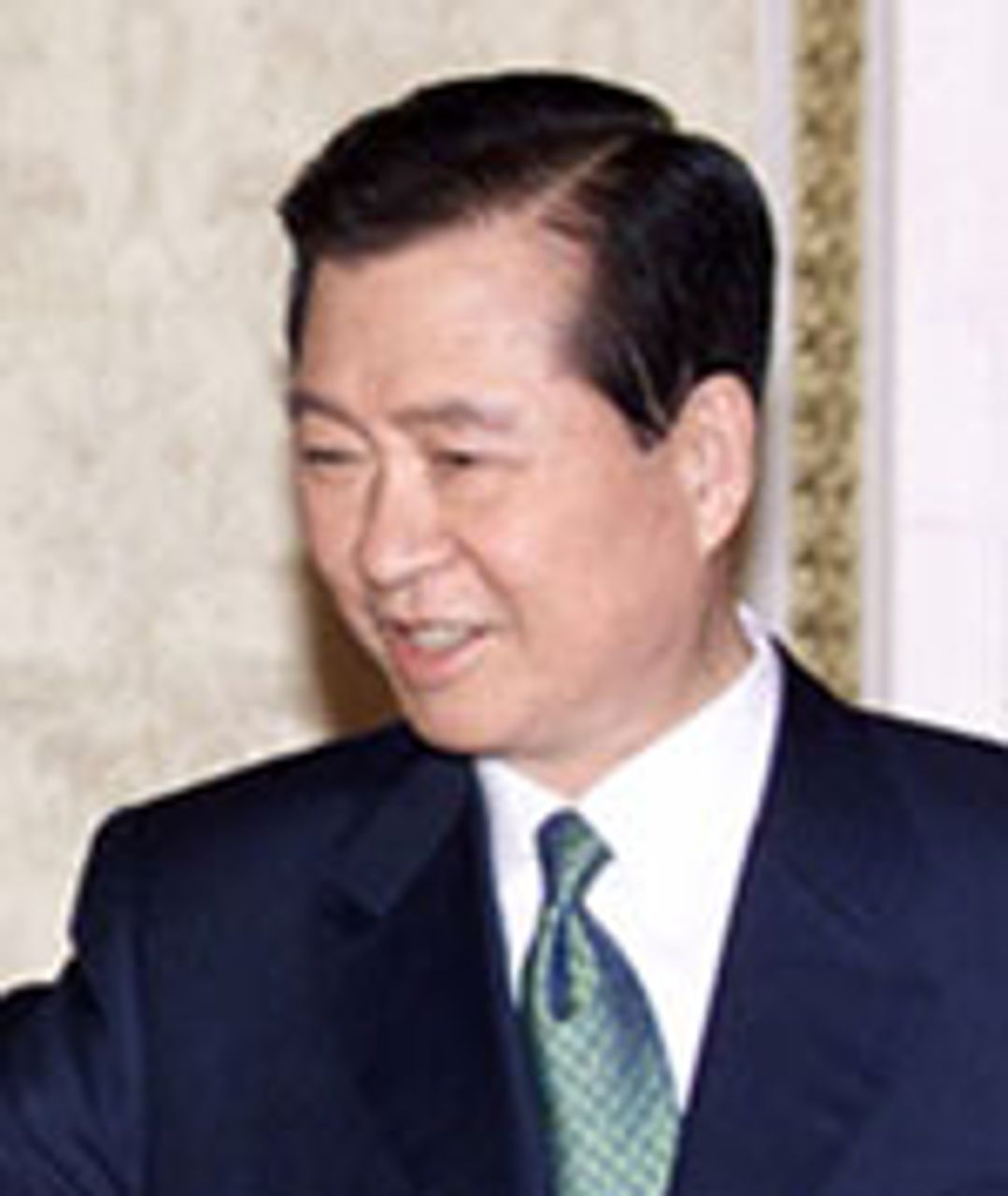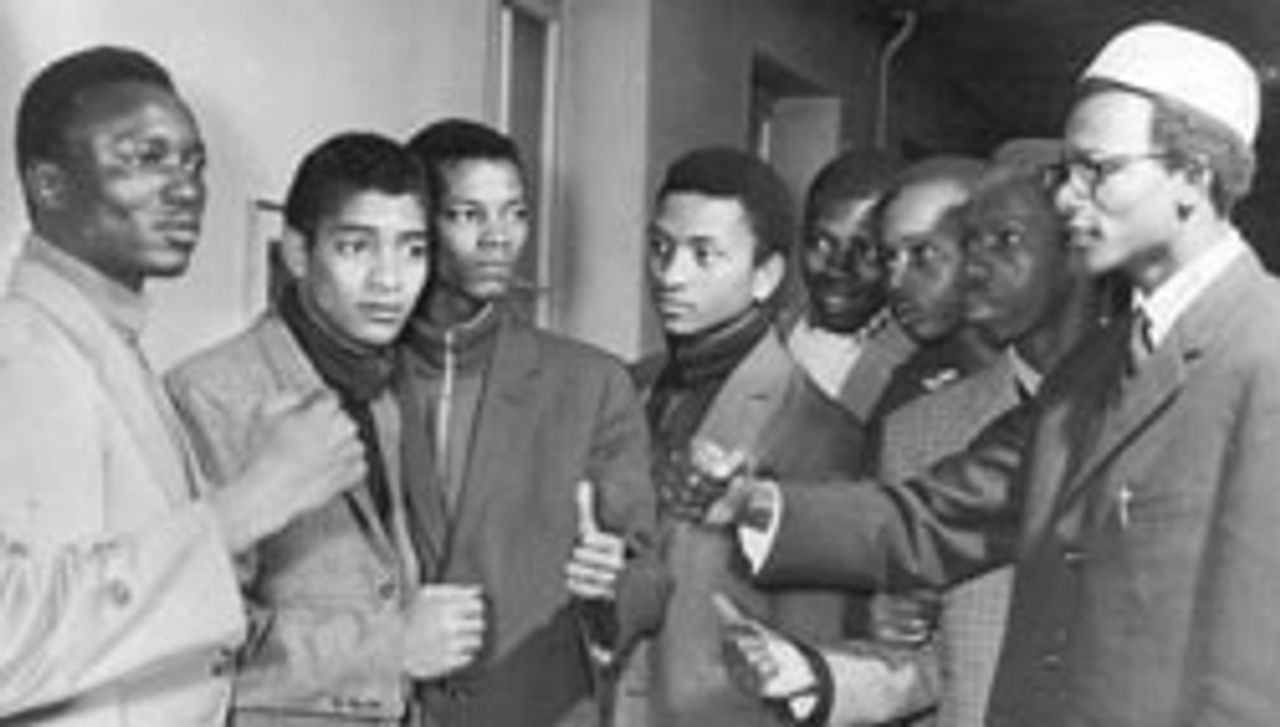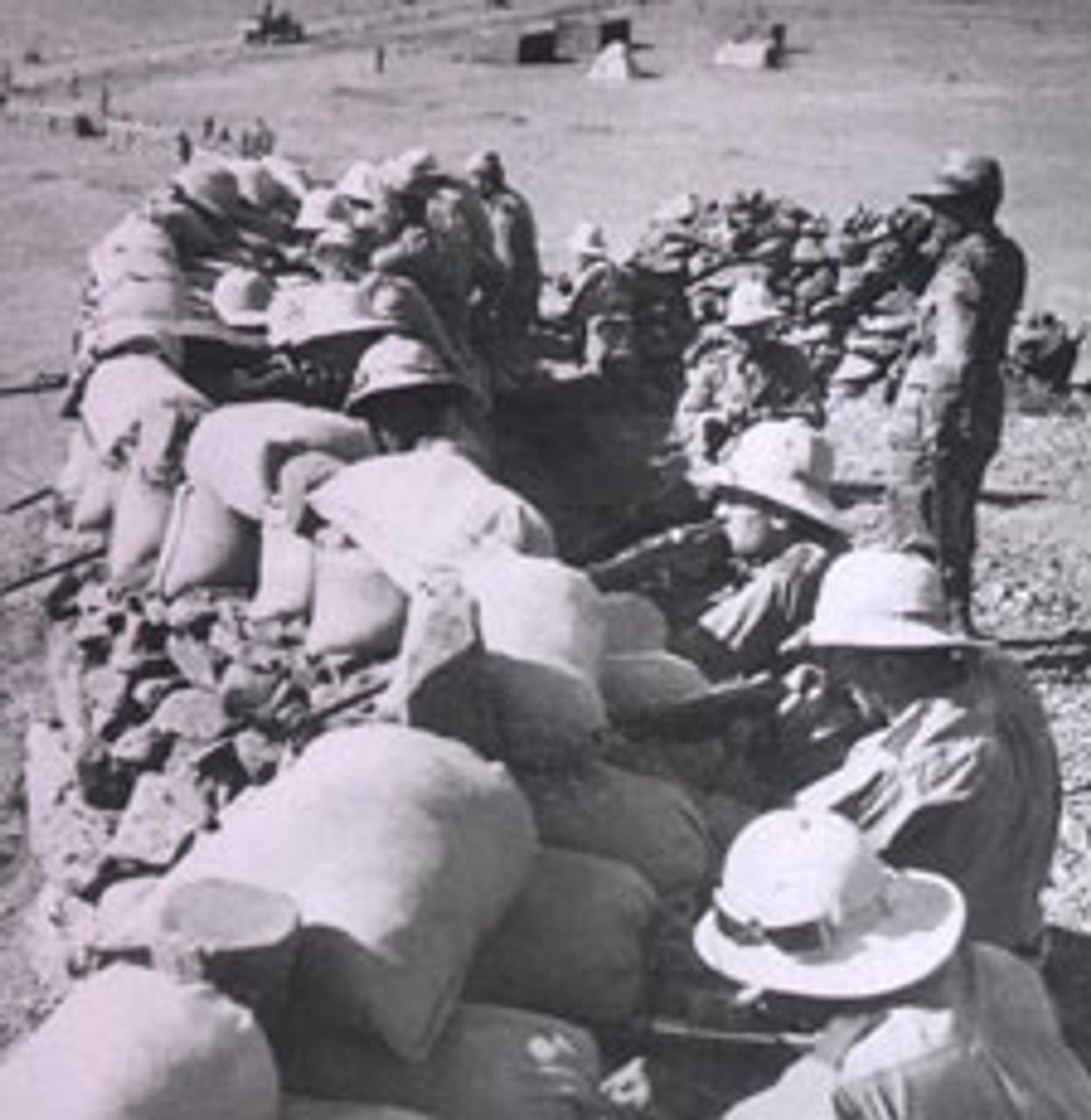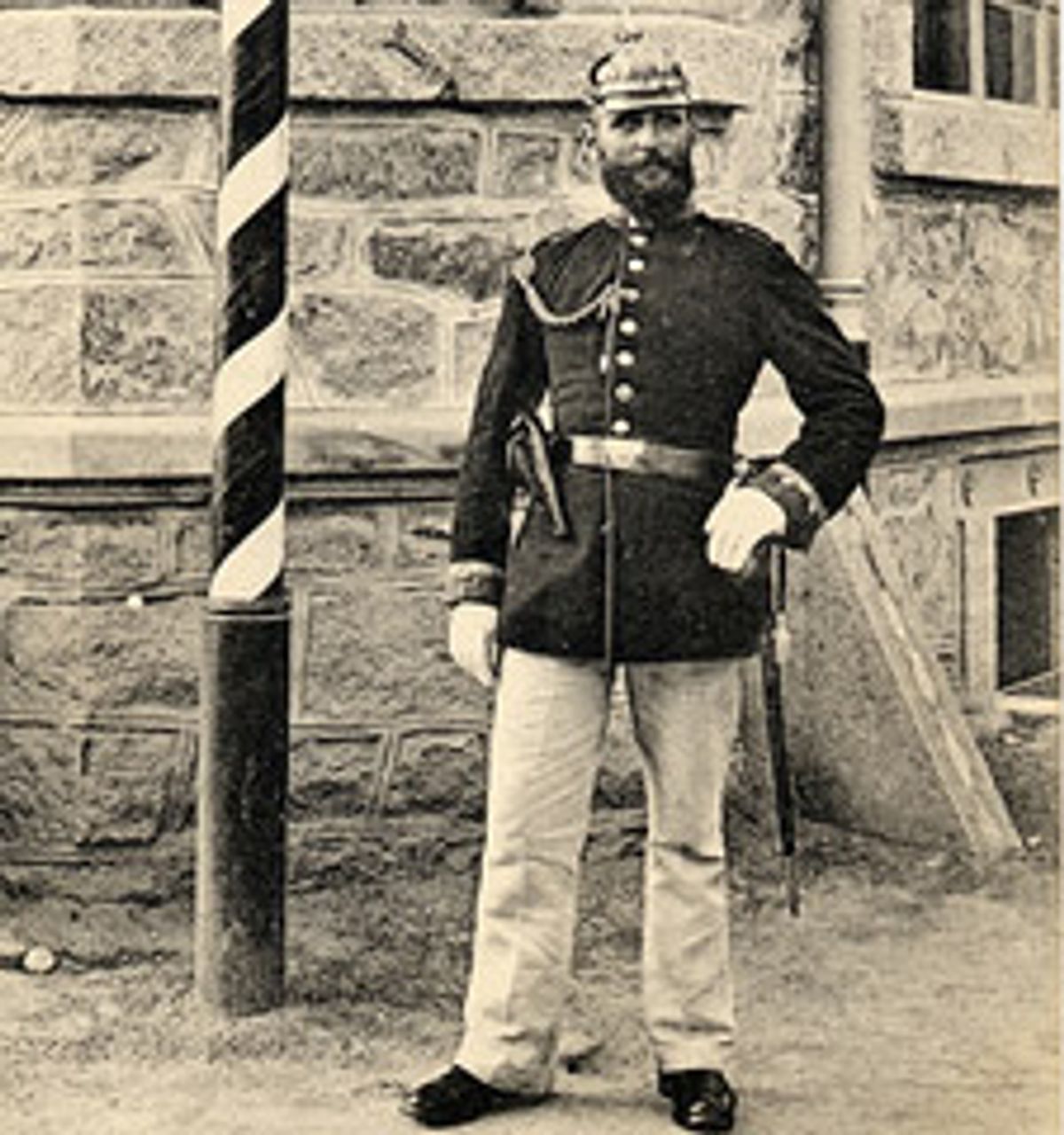This Week in History provides brief synopses of important historical events whose anniversaries fall this week.
25 Years Ago | 50 Years Ago | 75 Years Ago | 100 Years Ago
25 years ago: Dissident Kim Dae-jung roughed up on return to South Korea
 Kim Dae-jung pictured in
Kim Dae-jung pictured in2001
With parliamentary elections approaching, South Korea's leading dissident, Kim Dae-jung, and an entourage of 30 American supporters—including two US Congressmen—were roughed up on their arrival at Seoul's airport. Kim was immediately placed under house arrest. Members of the American delegation said that Kim was beaten and that they too were manhandled by dozens of plainclothes police. The South Korean government had banned all media from the area.
The Reagan administration expressed surprise at Kim Dae-jung's treatment, but refused to condemn the dictatorship of Chun Doo-hwan, among Washington's closest allies.
The South Korean military regime was facing mounting working class opposition to its rule. In a bid to stave off a social eruption, elements of the ruling class—supported by prominent liberals in the US—moved toward the rehabilitation of dissident pro-capitalist political forces. Other elements in the regime favored repression, and enjoyed the tacit support of the Reagan administration.
In the elections held February 12, Kim Dae-jung's New Korea Democratic Party (NKDP) won about 30 percent of the vote, while all opposition parties together won 60 percent of the vote.
50 years ago: France tests first atomic bomb
 Students from Mali in Germany protest
Students from Mali in Germany protestFrench nuclear test
On February 13, 1960, France detonated a 70 kiloton nuclear bomb in the atmosphere over Algeria's southern Sahara, not far from Mali and Mauritania. "Gerboise bleue," as Paris dubbed the explosion, announced France had joined the US, the Soviet Union, and the United Kingdom as a nuclear-armed state.
The test came at a period of mounting tensions both within France and internationally. France was embroiled in a dirty colonial war against the Algerian independence movement that had seen the military increasingly assert itself in the political life of the nation. Only three weeks earlier, President Charles de Gaulle had been forced to sack the head of military operations in Algeria, Jacques Massu, over vague threats the latter had made against the government. Massu and the military had played the critical role in the installation of de Gaulle in 1958 and the founding of the Fifth Republic.
The French quest for nuclear weapons was part of an agenda to give Paris a greater role on the world stage, independent from the US. Washington and London offered no direct support, and tacitly opposed it. The Soviet Union threatened to renounce its ban on nuclear testing in response to the French action.
75 years ago: Italy mobilizes troops in ongoing conflict with Ethiopia
 Italian soldiers in Ethiopia in 1935
Italian soldiers in Ethiopia in 1935Italian dictator Benito Mussolini this week in 1935 dispatched two divisions, numbering up to 35,000 soldiers, accompanied by heavy artillery and at least 50 planes to the border area between Ethiopia and Italian-Somalia. Three warships were also stationed off the Horn of Africa in preparation for a full scale invasion of one of the last two independent African states.
The supposed source of conflict was a clash between Ethiopian soldiers and Italian colonial forces that had taken place in Afdub, Ethiopia in late January. However, the "Abyssinian Crisis," as it came to be known, had been building since a battle in December 1934 that saw more than 100 Ethiopians and 50 Italians and Somalians killed in a conflict over control of the town of Walwal in the border area.
The size of the mobilization and the new level of aggression on the part of Mussolini was made possible by the signing of the Franco-Italian Agreement on January 7, 1935 in which France gave Italy a free hand to pursue its interests in Ethiopia in the hope that Italy could be won to an alliance against Hitler's Germany.
100 years ago: German police crush workers' demonstrations
 A German gendarme in 1910
A German gendarme in 1910The Socialist Party of Germany (SPD) held hundreds of rallies across Germany on February 13, 1910, to protest against the perpetuation of the Prussian three-class franchise, which stipulated that the wealthiest voters would have out-sized representation in the Reichstag, the German parliament.
German police responded ruthlessly to the peaceful demonstrations. In Berlin alone, hundreds were slashed by police sabers. Workers responded by hurling rocks at the police, injuring several. In Neumunster a worker was killed after a saber punctured his lung, and police slashed a hand and an ear off two other protesters. In Halle, police attacked a large protest of workers who chanted "Down with the Junkers!" and "Away with Bethmann-Holweg!" Thirty of the demonstrators were hospitalized. Massive rallies, violence, and police repression were also reported in Cologne, Duisberg, Konigsberg, and Frankfurt-am-Main, where the socialist journalist Hermann Wendel, as he was hauled away by police, yelled out at a statue of Bismarck "long live universal secret suffrage!"
Voting in much of Germany was unequal, indirect, and not secret. Those who paid the highest taxes were given a third of all electors, who in turn voted on the composition of the Reichstag; a second class of high tax payers were also given a third of all votes. But these first two high-income classes represented only a small share of the population, making their votes worth substantially more than the great majority with little or no income. Votes took place orally and in public, meaning that workers could be subject to retaliation by their bosses and local authorities if they voted socialist.
